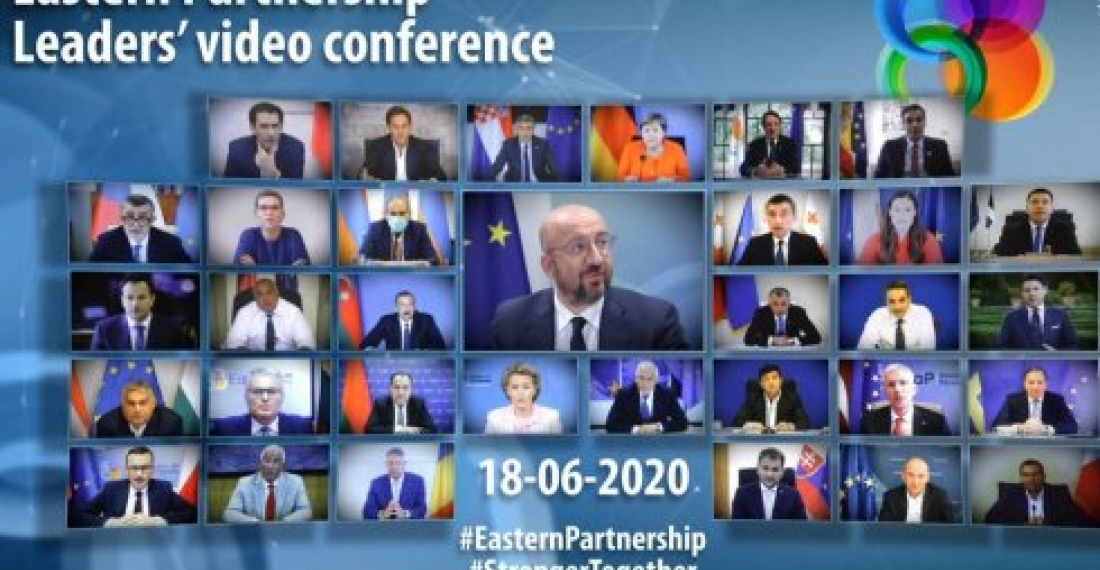В четверг (18 июня) в рамках встречи лидеров Восточного партнерства, которая состоялась посредством видеоконференции, лидеры ЕС обсудили со своими шестью восточными партнерами - Арменией, Азербайджаном, Беларусью, Грузией, Республикой Молдова и Украиной - ответ на COVID-19, последствия кризиса, стратегическое партнерство и его будущее.
Лидеры подчеркнули важность солидарности во время кризиса COVID-19, включая существенную поддержку ЕС в борьбе с последствиями вспышки в регионе Восточного партнерства (ВП).
Они подтвердили свою приверженность и большое значение, которое они придают Восточному партнерству в качестве приоритета внешней политики, и выделили различные области сотрудничества, такие как соглашения о торговле, безвизовом режиме или упрощении визового режима.
Выступая в ходе виртуальной пресс-конференции после видеоконференции, президент Европейского совета Чарльз Мишель заявил, что в ходе встречи лидеры «выразили политическую волю к продолжению строительства зоны общей демократии, процветания и стабильности, закрепленной в нашей общей ценности, через правила международного порядка и международного права".
Было также решено, что в марте 2021 года в Брюсселе состоится физический саммит, в ходе которого лидеры утвердят пять политических приоритетов в совместной декларации.
Источник: commonspace.eu по материалам Consilium.europa.eu







